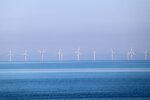04/12/2005
French Parliament puts on risk emerging national wind industry
The French National Assembly has taken a decision on the future of wind energy utilisation in the country. The adopted legislation will lead to a stop of private wind energy investment if the current draft gets final approval by the Senate. France runs into danger to fail developing a future key industry and to isolate itself internationally. Such break in the country’s efforts to achieve a sustainable energy supply will strongly irritate the wind sector and especially the developing world. The French Senate is expected within the next weeks to decide about a new legislation, which allows feed-in tariffs only for wind installations bigger than 20 megawatt, only in specific areas that still have to be defined and designated by the local representative of the national State (Préfet). The French General Assembly already adopted the draft at the beginning of this week. The amendment means a complete break in the wind energy promotion scheme stopping all private investment in wind energy.
The wind energy development in France went well during the last three years, based on a comprehensive and sophisticated feed-in tariff scheme providing a stable and reliable framework for investment, despite a ceiling of 12 megawatt for eligibility. This current legislation has enabled private investors to create a new industry in the country and to attract substantial investment, with an increase in installed capacity from 148 megawatt by the end of 2002 to 386 megawatt by the end of 2004. This overall installed capacity yet equals an investment of some 400 million €, with potentially excellent growth perspectives in the near future. This size of the French market is still small compared with countries like Germany, Spain, the USA, Denmark or India. However, France has reached a point where the wind industry has got the necessary size for further substantial and dynamic growth.
Marc Jedliczka, managing director of the French renewable energy association Hespul, comments on the recent political developments: “This amendment, if finally adopted by the Senate, will make it impossible for independent power producers to invest in wind farms in France any more. Such decision is only in the interest of EDF and strikes twice against European law: It reverses the tiny liberalisation achievement of the French electricity market and it will make it impossible to achieve the renewable energy target as set up by the European directive. The European Commission has to act clearly against such break of European law.” WWEA President Preben Maegaard stresses the importance of strengthening local structures: “We know very well from the experiences in other countries – underlined also by a report funded by the European Union – that it is one basic precondition for successful wind energy development in France to strengthen the local economy in rural areas, not least by establishing local cooperatives. Social aspects have to be considered and local people should be the ones that benefit especially. Instead of abolishing successful frameworks, the French Parliament should improve the legislative frameworks for such purposes.”
The wind sector is strongly concerned by the current development. Ulrich Lenz, managing director of the developer Ostwind International: “We have already created 18 jobs and invested 6 million € in the past years. We have been planning to invest another 300 million € and to create additional 20 local jobs till 2007. With the amendments in force, this investment is highly in danger.” A stop of the wind development in France would also be a fatal signal for many developing countries for which renewable energy will be the only viable option to achieve an affordable, clean and secure energy supply. Stefan Gsänger, Secretary General of WWEA, comments on the international implications of a shift of the French wind energy legislation: “France in general has been a country with strong links with many third-world countries, mainly in Africa. The French wind energy legislation could have been an example for many of these countries that want to introduce wind power on a larger scale. If France goes now for an energy system that those countries for many reasons never can afford – being almost completely based on nuclear energy –, then this will have serious consequences for the international credibility of the French government in matters of sustainable development.”
The wind energy development in France went well during the last three years, based on a comprehensive and sophisticated feed-in tariff scheme providing a stable and reliable framework for investment, despite a ceiling of 12 megawatt for eligibility. This current legislation has enabled private investors to create a new industry in the country and to attract substantial investment, with an increase in installed capacity from 148 megawatt by the end of 2002 to 386 megawatt by the end of 2004. This overall installed capacity yet equals an investment of some 400 million €, with potentially excellent growth perspectives in the near future. This size of the French market is still small compared with countries like Germany, Spain, the USA, Denmark or India. However, France has reached a point where the wind industry has got the necessary size for further substantial and dynamic growth.
Marc Jedliczka, managing director of the French renewable energy association Hespul, comments on the recent political developments: “This amendment, if finally adopted by the Senate, will make it impossible for independent power producers to invest in wind farms in France any more. Such decision is only in the interest of EDF and strikes twice against European law: It reverses the tiny liberalisation achievement of the French electricity market and it will make it impossible to achieve the renewable energy target as set up by the European directive. The European Commission has to act clearly against such break of European law.” WWEA President Preben Maegaard stresses the importance of strengthening local structures: “We know very well from the experiences in other countries – underlined also by a report funded by the European Union – that it is one basic precondition for successful wind energy development in France to strengthen the local economy in rural areas, not least by establishing local cooperatives. Social aspects have to be considered and local people should be the ones that benefit especially. Instead of abolishing successful frameworks, the French Parliament should improve the legislative frameworks for such purposes.”
The wind sector is strongly concerned by the current development. Ulrich Lenz, managing director of the developer Ostwind International: “We have already created 18 jobs and invested 6 million € in the past years. We have been planning to invest another 300 million € and to create additional 20 local jobs till 2007. With the amendments in force, this investment is highly in danger.” A stop of the wind development in France would also be a fatal signal for many developing countries for which renewable energy will be the only viable option to achieve an affordable, clean and secure energy supply. Stefan Gsänger, Secretary General of WWEA, comments on the international implications of a shift of the French wind energy legislation: “France in general has been a country with strong links with many third-world countries, mainly in Africa. The French wind energy legislation could have been an example for many of these countries that want to introduce wind power on a larger scale. If France goes now for an energy system that those countries for many reasons never can afford – being almost completely based on nuclear energy –, then this will have serious consequences for the international credibility of the French government in matters of sustainable development.”
- Source:
- WWEA
- Author:
- Edited by Trevor Sievert, Online Editorial Journalist
- Email:
- press@windfair.net
- Keywords:
- WWEA, France, wind energy, renewable energy, wind power, wind farm, wind turbine, rotor-blade, offshore, onshore

























